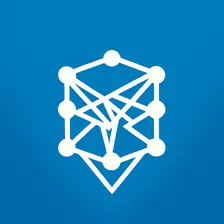Lara Translate MCP Server
Pricing
Pay per event
Lara Translate MCP Server
Under maintenanceThe Lara Translate MCP Server handles translation requests and manages multilingual processing for Lara Translate services.
0.0 (0)
Pricing
Pay per event
0
3
2
Last modified
2 months ago
Lara Translate MCP Server
A Model Context Protocol (MCP) Server for Lara Translate API, enabling powerful translation capabilities with support for language detection, context-aware translations and translation memories.
About this MCP Server: To understand how to connect to and utilize this MCP server, please refer to the official Model Context Protocol documentation at mcp.apify.com.
📚 Table of Contents
- 📖 Introduction
- 🛠 Available Tools
- 🚀 Getting Started
- 📋 Requirements
- 🔌 Installation
- 🧩 Installation Engines
- 💻 Popular Clients that supports MCPs
- 🆘 Support
📖 Introduction
What is MCP?
How Lara Translate MCP Works
Why use Lara inside an LLM?
🛠 Available Tools
Translation Tools
translate- Translate text between languages
Translation Memories Tools
list_memories- List saved translation memoriescreate_memory- Create a new translation memoryupdate_memory- Update translation memory namedelete_memory- Delete a translation memoryadd_translation- Add a translation unit to memorydelete_translation- Delete a translation unit from memoryimport_tmx- Import a TMX file into a memorycheck_import_status- Checks the status of a TMX file import
🚀 Getting Started
📋 Requirements
- Lara Translate API Credentials (refer to the Official Documentation)
- An LLM client that supports Model Context Protocol (MCP), such as Claude Desktop, Cursors, or GitHub Copilot
- NPX or Docker (depending on your preferred installation method)
🔌 Installation
Introduction
The installation process is standardized across all MCP clients. It involves manually adding a configuration object to your client's MCP configuration JSON file. If you're unsure how to configure an MCP with your client, please refer to your MCP client's official documentation. Lara Translate MCP supports multiple installation methods, including NPX and Docker. Below, we'll use NPX as an example.
Installation & Configuration
-
Step 1: Open your client's MCP configuration JSON file with a text editor, then copy and paste the following snippet:
{"mcpServers": {"lara-translate": {"command": "npx","args": ["-y","@translated/lara-mcp@latest"],"env": {"LARA_ACCESS_KEY_ID": "<YOUR_ACCESS_KEY_ID>","LARA_ACCESS_KEY_SECRET": "<YOUR_ACCESS_KEY_SECRET>"}}}} -
Step 2: Replace
<YOUR_ACCESS_KEY_ID>and<YOUR_ACCESS_KEY_SECRET>with your Lara Translate API credentials (refer to the Official Documentation for details). -
Step 3: Restart your MCP client.
Verify Installation
After restarting your MCP client, you should see Lara Translate MCP in the list of available MCPs. The method for viewing installed MCPs varies by client. Please consult your MCP client's documentation. To verify that Lara Translate MCP is working correctly, try translating with a simple prompt:
Translate with Lara "Hello world" to Spanish
Your MCP client will begin generating a response. If Lara Translate MCP is properly installed and configured, your client will either request approval for the action or display a notification that Lara Translate is being used.
🧩 Installation Engines
Option 1: Using NPX
Option 2: Using Docker
Option 3: Building from Source
-
Using Node.js
Clone the repository:
git clone [https://github.com/translated/lara-mcp.git](https://github.com/translated/lara-mcp.git)cd lara-mcpInstall dependencies and build:
# Install dependenciespnpm install# Buildpnpm run buildAdd the following to your MCP configuration file:
{"mcpServers": {"lara-translate": {"command": "node","args": ["<FULL_PATH_TO_PROJECT_FOLDER>/dist/index.js"],"env": {"LARA_ACCESS_KEY_ID": "<YOUR_ACCESS_KEY_ID>","LARA_ACCESS_KEY_SECRET": "<YOUR_ACCESS_KEY_SECRET>"}}}}Replace:
<FULL_PATH_TO_PROJECT_FOLDER>with the absolute path to your project folder<YOUR_ACCESS_KEY_ID>and<YOUR_ACCESS_KEY_SECRET>with your actual Lara API credentials.
-
Building a Docker Image
Clone the repository:
git clone [https://github.com/translated/lara-mcp.git](https://github.com/translated/lara-mcp.git)cd lara-mcpBuild the Docker image:
$docker build -t lara-mcp .Add the following to your MCP configuration file:
{"mcpServers": {"lara-translate": {"command": "docker","args": ["run","-i","--rm","-e","LARA_ACCESS_KEY_ID","-e","LARA_ACCESS_KEY_SECRET","lara-mcp"],"env": {"LARA_ACCESS_KEY_ID": "<YOUR_ACCESS_KEY_ID>","LARA_ACCESS_KEY_SECRET": "<YOUR_ACCESS_KEY_SECRET>"}}}}Replace
<YOUR_ACCESS_KEY_ID>and<YOUR_ACCESS_KEY_SECRET>with your actual credentials.
💻 Popular Clients that supports MCPs
For a complete list of MCP clients and their feature support, visit the official MCP clients page.
| Client | Description |
|---|---|
| Claude Desktop | Desktop application for Claude AI |
| Aixplain | Production-ready AI Agents |
| Cursor | AI-first code editor |
| Cline for VS Code | VS Code extension for AI assistance |
| GitHub Copilot MCP | VS Code extension for GitHub Copilot MCP integration |
| Windsurf | AI-powered code editor and development environment |
🆘 Support
- For issues with Lara Translate API: Visit Lara Translate API and Integrations Support
- For issues with this MCP Server: Open an issue on GitHub
🚩 Claim this MCP server. Contact info.
All credits to the original authors of https://github.com/translated/lara-mcp
Write to ai@apify.com
Original project URL: https://github.com/translated/lara-mcp


